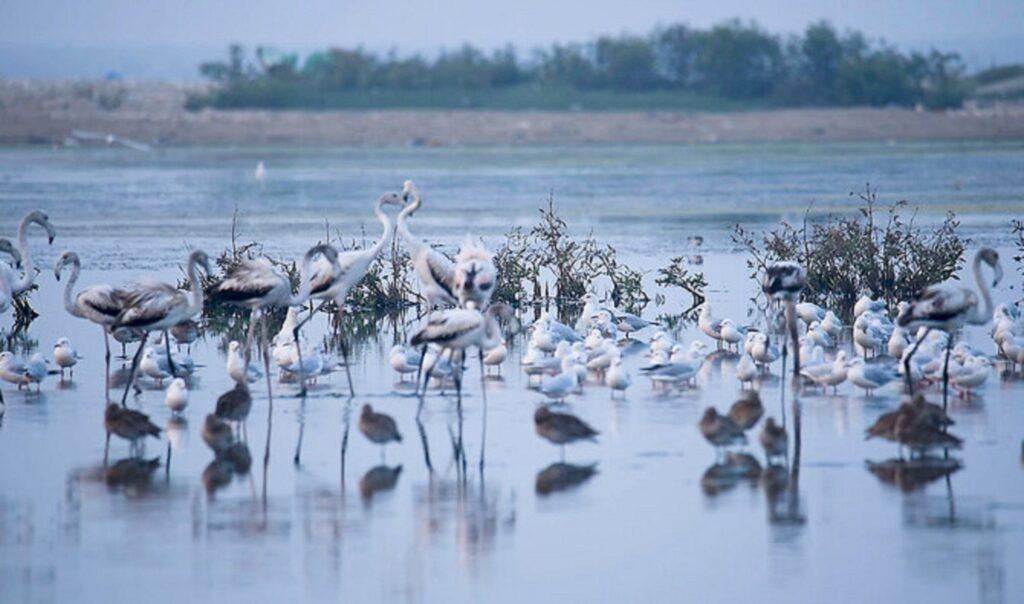Karachi:
Pakistan wetlands face severe degradation due to water stress, not treated industrial waste, the recovery of the earth and agricultural runoff, the reduction of its ecological value and threatening biodiversity, WWF-Pakistan warned in a statement issued On World Wetlands Day 2025.
The organization warned that species such as Dolphin of the Indo River, fresh water turtles and migratory birds had a serious risk due to continuous destruction of wetland ecosystems.
Asking for immediate efforts of conservation and restoration, WWF-Pakistan emphasized that wetlands served as lines of biodiversity, local communities and sustainable development.
Pakistan houses more than 240 significant wetlands, which covers approximately 10% of the country’s earth’s surface. These wetlands offer media support to local communities and provide essential ecosystems services, which include water filtration, carbon storage, flood control and habitat for innumerable species, including migratory birds and commercially important fish.
However, these fragile ecosystems are under a severe threat due to water scarcity, pollution, invasion, unregulated development, climate change and the extraction of unsustainable resources, the statement warned.
Muhammad Jamshed Iqbal Chaudhry, senior research and conservation manager at WWF-Pakistan, commented that wetlands are a lifeguard for millions of Pakistani, especially the communities that depend on fishing, agriculture and tourism.
The wetlands listed by Ramsar in Pakistan, such as Keenjhar Lake, Haleji Lake, Chashma Barge and Jiwani Coastal Wetlands, are fields of reproduction and critical feeding for migratory birds, including white head ducks, flamenco, granes and the Siberian crane of high -performance critical critical .
Wetlands also serve as a shock absorber against climate change, absorbing excess flood water and reducing the impact of extreme climatic events. “Keeping wetlands, therefore, is not only an environmental imperative but a social and economic need,” he urged.
WWF-Pakistan is actively working to conserve and restore wetlands through various initiatives, including the implementation of community-based conservation projects in the Delta del Indo, Punjab wetlands and Baluchistan coastal ecosystems. The initiatives, including the responsibility of water resources in Pakistan (Wrap) and Pakistan recharge (RP), demonstrate the use of nature -based solutions (NBS) to address wetland challenges.




